| Dr. Judy Reese and student travel
Italy and Greece--March '03
China and Mongolia--June '02
Mayan Experience--June '01
Navajo Reservation--Aug. '00
Costa Rica--April '00
Greece and Turkey--April '99
Western Europe--April '98
Contact Page
Guest Book
|
Beijing, China then to Ulaanbaatar, Mongolia -- June '02
EXECUTIVE SUMMARY:
Youth for Participatory Local Democracy
WSP (Women for Social Progress Movement), a Mongolian civic sector organization, seeks:
1) to mobilize young people (Mongolian university and high school students) to improve the effectiveness, openness, transparency and accountability of local government institutions;
2) to encourage and help young people to be active citizens involved in public affairs, in monitoring and advocacy activities, and community development projects.
For this purpose, the WSP headquarters with the assistance of Rutgers CASE (Citizenship and Service Education) Program will train 30 university and high school students in lobbying, advocacy, community development, participatory training, action research/problem-identification, problem-solving skills, and organizing public hearings on local issues.
|
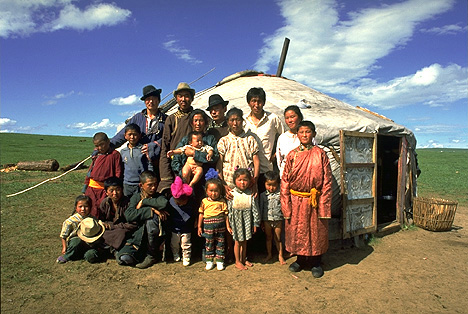 Mongolian family outside their ger
THE PROBLEM
Mongolian family outside their ger
THE PROBLEM
Foreign development assistance is essential to a transitional democracy. Mongolia, free of Soviet rule since 1990, is one such newly independent democracy. According to Freedom House’s Annual Country Survey 2000-2001, the newly democratic Mongolia is landlocked between “partly-free” Russia and “not-free” China, respectively. Penn Legal Studies Professor Phillip Nichols, who has “spent a bit of time talking to people about democracy,” while teaching at the National University of Mongolia in Ulaanbaatar, said that Mongolian democracy “is pretty interesting… Mongolia is a pretty democratic place.” However, he argues that the country can use help other than financial aid. In a Daily Pennsylvanian article, Nichols has said that the best thing that universities can do for the transitional countries like Mongolia would be to provide teams of development experts.
Youth development is a key factor in Mongolia’s transition to a full-fledged democratic nation, as no social force is mightier than young people who have made up their minds. To maximize their impact, socially conscious youth need guidance and support from the Mongolian and international civic sector.
|
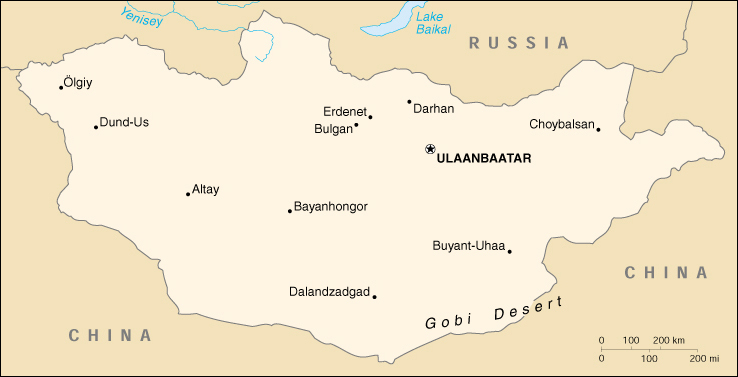 THE START OF A SOLUTION
THE START OF A SOLUTION
In Mongolia, the Women for Social Progress Movement (WSP) wants to empower college and high school students to become active in their society. Specifically, WSP intends to help young people organize participatory action research to identify pressing local issues, organize community dialogue/public discussions of those issues to search for possible solutions, and conduct lobbying and advocacy work to urge local legislatures to review those problems and solutions and, where possible, adopt them.
|
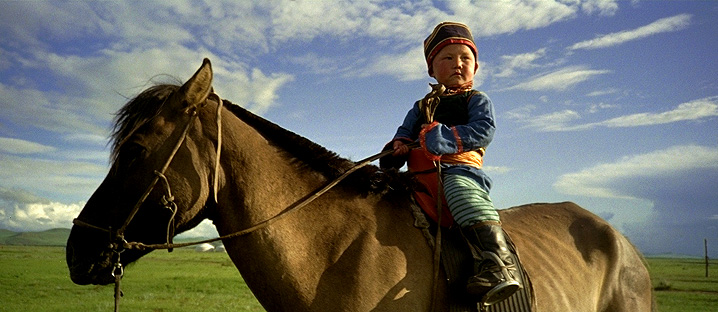 ENTER RUTGERS CASE
ENTER RUTGERS CASE
To accomplish these ambitious goals, WSP has asked Rutgers CASE to help. Rutgers CASE (Citizenship and Service Education) has broad experience with youth development at Rutgers, the State University of New Jersey. In 1993, President Clinton came to Rutgers CASE to recognize its effort to train students to be effective citizens possessing the technical skills to flourish in today’s complex world, and to have a reflexive sense of connectedness to others that is the essence of citizenship. Since 1993, CASE has grown dramatically. CASE volunteers have rendered more than half a million hours of service valued conservatively at .0 million. Today CASE students provide 75,000 hours of service annually worth almost a half million dollars. With the launch of njserves.org, CASE’s student-developed and -managed Internet portal for the New Jersey civic sector, CASE has become a key direct service provider to citizens, civic organizations, government and corporate New Jersey. Furthermore, CASE-International has consulted to create service-learning programs in Costa Rica, Estonia, Lebanon, Poland and South Africa.
|
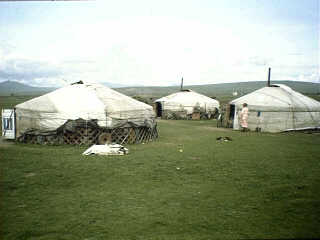 THE CASE-MONGOLIA TEAM
THE CASE-MONGOLIA TEAM
The CASE-Mongolia Team includes two veterans of the CASE-International team: D. Michael Shafer, Director of Rutgers CASE and Professor of Political Science, who has helped launch university civic participation organizations around the world; and Beth Leech, Assistant Professor of Political Science at Rutgers, who teaches a popular CASE Course about grassroots activism and participated in CASE-Lebanon. CASE-Mongolia also includes five CASE students: Elora Mukherjee, a senior Economics-Political Science-Spanish triple major at Rutgers; Jess Butwinski, a senior Finance major at the Rutgers School of Business with minors in Political Science and Africana Studies; Robin Bose, a junior Economics-International Relations double major at the University of Pennsylvania; Vanessa Reese, high school senior at The Hill School in PA and early admit to Brown University for Biomedical Engineering in the fall of 2002; and, Siena Reese, high school sophomore at The Hill School. All 5 students have worked closely together at CASE’s internet portal, njserves.org, and have had extensive personal experience supporting nonprofits and international NGOs. Additional students may be included if funding is possible.
|
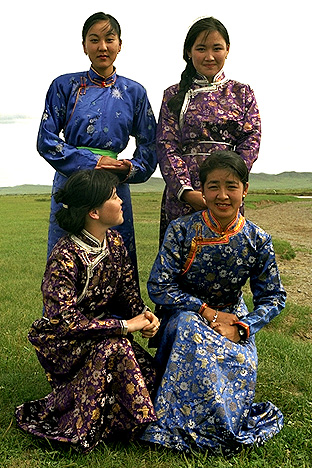 PROJECT DESCRIPTION
PROJECT DESCRIPTION
The CASE-Mongolia Team will collaborate with WSP to develop an intense, 2-week civic participation workshop in Ulaanbaatar, Mongolia. In Ulaanbaatar, CASE would work intensely with WSP principals, 5-10 students and a professor/teacher or two to develop the core program from the ground up with the direct participation of the target audience. In this process, CASE and WSP will identify a list of initial topics and targets of research and advocacy, jointly develop teaching materials and exercises that will work with university and high school students (because they helped develop them), and jointly develop a "language" that captures what CASE and WSP are doing and why.
With this curriculum in hand, CASE and WSP will run an initial training with another 15 university students and set them to work in one locale. CASE and WSP will then help the students get set in the test locale and help them work through the first round of work. The Civic Participants (CASE, WSP, initial class of students and a few citizens from the first locale the students have chosen) will then reconvene in Ulaanbaatar to debrief the whole process.
Finally, with an "empirically validated" set of training materials and experience, the Mongolian WSP Youth for Participatory Local Democracy Project will move onto 5 more aimags/provinces (Bulgan, Selenge, Umnugobi, Khuvsgul, Arkhangai) and one Ulaanbaatar district. Locale selection is based on the active WSP branches; and the aimags are spread out geographically.
|
Mongolia Program Cost Estimates
Roundtrip Airfare from Newark, NJ to Beijing China
Chinese Consular Fee for a Double Entry/Transit Visa to China
Double Room in Beijing, China (X 2 Nights / 2 Occupants)
Mongolian Consular Fees for 30-day Visa to Mongolia
Train from Beijing to Ulaanbaatar, Mongolia (30 hours)
Housing Cost, 3 weeks stay in Ulaanbaatar @ per night
Food (), City Travel and Living Expenses in Ulaanbaatar @ /day
Departure Tax and Misc. costs
Total Summer Costs in Mongolia is ,500 per American
|
|
to sponsor a student for the CASE-Mongolia service trip
To make a donation to sponsor a student for the Rutgers University CASE—Mongolia Service Trip please make your check out to RU Foundation/CASE with the students last name on the memo line and Mongolia (example: Reese-Mongolia). Donations are tax deductible. Rutgers University Foundation and CASE are 501 c 3 nonprofits. In order to determine which students may attend please mail donations by April 15th to:
Dr. Michael Shafer
CASE/Mongolia Service Project, Rutgers
191 College Avenue
New Brunswick, NJ 08901
732-932-8660
|
|